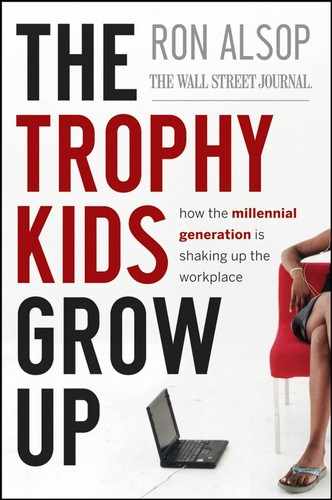1.4. MILLENNIALS AROUND THE GLOBE
Although the millennial generation is identified most closely with the United States, teenagers and young adults in other countries share many of the same attributes as their American counterparts.
De Wazières, the recruiting chief at L'Oréal, has noticed that millennials around the globe are surprisingly similar. "One thing I find to be very universal is that they have international experiences, are eager to take on the world, and value their relationships with their parents and the relationships they can develop with older people in the workplace," he says. "I tell our managers the good news is that this generation won't hate you."
He particularly observes the common bonds between millennials of different cultures at L'Oréal's annual marketing and strategy competitions for business school students. "It's the best way to witness how alike this generation is, whether they're from Malaysia, India, France, Argentina, or the United States," he says. "They wear the same clothing, have the same iPods, and mix and connect easily. Two hours after meeting, they're probably best friends on Facebook." Indeed, this is clearly a high-tech generation, regardless of geography. Technology has linked young people from all corners of the globe and allowed them to share information and experiences virtually.
"There are cultural and geographic differences that cause things to play out a little differently," says Atkinson, the management education consultant. "But I see many similarities across national boundaries in the millennials' optimism, manifest destiny to change the world, and drive to succeed."
Researchers in Australia, for example, have found millennials Down Under to be much like those in the United States on several counts, including their job-hopping habits. An Australian study by the recruiting firm Drake revealed that nearly two-thirds of millennials stay less than two years with an employer, and nearly half had already held five jobs in their few short years in the workplace.
Some studies have focused on millennials in several different countries and come up with striking parallels. The market-research firm Synovate looked at young people in the United Kingdom, Canada, and the United States and labeled them the "stay-at-home generation" because they tend to rely so much on parents for support and often live with them longer than previous generations. "The taboo of living with Mom and Dad has disappeared in a number of countries, not just the United States," says Julian Rolfe, global manager of syndicated youth research. "It has a lot to do with best friend parenting, especially with mothers and daughters who share clothes and music and think of each other as mates." In the United Kingdom, millennials who linger in the nest are sometimes called "kippers," short for "kids in parents' pockets eroding retirement savings."
PricewaterhouseCoopers undertook a major study of millennials in the United States, United Kingdom, and China to determine their expectations about work. In a survey of about 2,700 graduates who were offered jobs with the accounting firm, it found that more than 90% of millennials in all three countries believe they are more likely than their parents to "work across geographic borders," and roughly three-quarters believe they will have two to five employers during their careers. About 10% of the Chinese students expect to work for 10 or more employers, compared with 3% of the U.S. and U.K. respondents.
"This is a very demanding, very career savvy group of young people with huge similarities across countries," says Michael Rendell, partner and leader of human resource services for PricewaterhouseCoopers. "To keep them from leaving, companies will have to give them more responsibilities early in their careers and offer them a range of opportunities, including international assignments."
Despite such research studies, some educators and recruiting experts worry that millennials in the United States may find members of their generation from other countries, especially Asian nations, stiff competition because of a stronger work ethic. "We can expect the millennial generation's international counterparts from China, India, and other countries to pass them by in promotions, raises, and career development, while the American millennials are tending to their own personal needs," says Bruce Moore, associate director of the career management center at the Cox School of Business at Southern Methodist University in Dallas.
Dennis Garritan, director of graduate programs in human resource management at New York University, warns millennials to be especially concerned about competition from China. "I believe Chinese women in the millennial generation who are multilingual and intellectually gifted will give Americans a run for their money," he says. "They bring the millennials' skills, but they also have the baby boomers' work ethic. Personally, I would hate to have to compete with some of these young Chinese women for jobs."
CHAPTER HIGHLIGHTS
|
